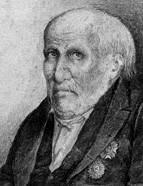

Lisboa’s reformist education at Coimbra and his exposure to the counter-revolutionary climate during his second stay in Portugal reinforced his admiration for British authors, notably Adam Smith in economics and Edmund Burke in politics. In 1812, he published a translation with excerpts from Burke’s works, particularly the Reflexões sobre a Revolução em França [ Reflections on the Revolution in France ]. He cited and also demonstrated familiarity with the historical works of Gibbon, Hume, Robertson, and Southey. Among the classical authors, he admired Tacitus, whom he frequently cited in his historical writings.
The fields of intellectual history and the history of ideas in Brazil prioritise d interpretations that framed José da Silva Lisboa as a precursor of economic liberalism, celebrating his contributions to political economy. This interpretive bias, however, overshadowed the historical reflections embedded in his works. Enlightenment narratives and a theory of history underpinned his understanding of economics as a branch of jurisprudence and morality. Even more critically, this focus on political economy contributed to diluting the significance of his explicitly historical writings—a domain that, while less prolific, was no less important.
For Lisboa, as with his other intellectual pursuits, history was a means to serve the nation, the monarchy, and the common good. His memoirs published during the reign of João VI in Brazil responded to the immediate political context. The biography of Lord Wellington celebrated the French defeat and the liberation of the kingdom, emphasising the aristocratic virtues of the great military leader as an example of moral edification and as proof of the superiority of these values over the revolutionary Napoleonic world. Across the two volumes, readers follow the meteoric career of the British military leader , detailed accounts of his campaigns, and anecdotes demonstrating his steadfast character, while encountering numerous denunciations of Napoleon and his ambition to become the tyrant of the world.
This work is financed by national funds through FCT - Foundation for Science and Technology, I.P, in the scope of the projects UIDB/04311/2020 and UIDP/04311/2020.
